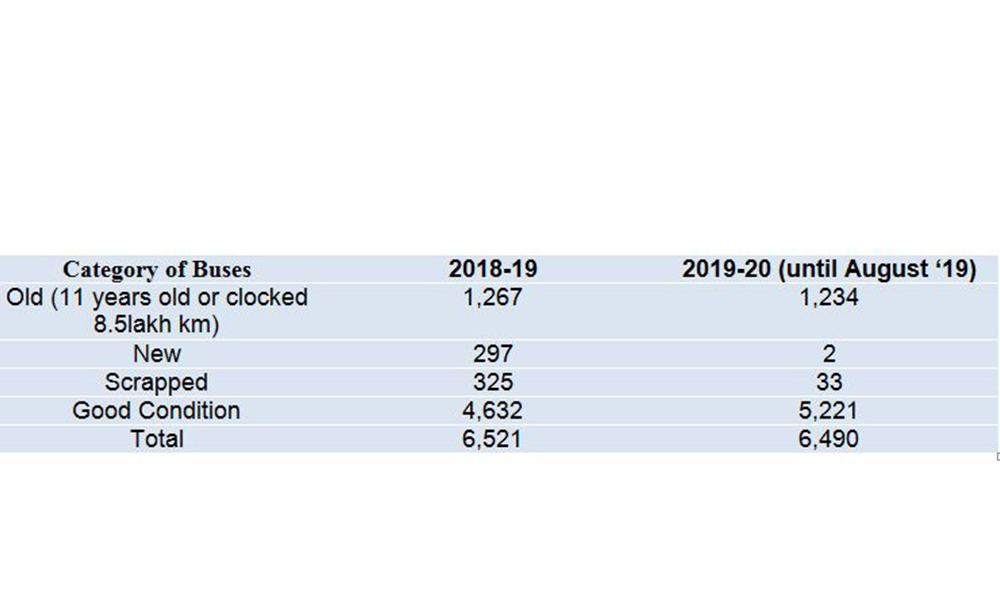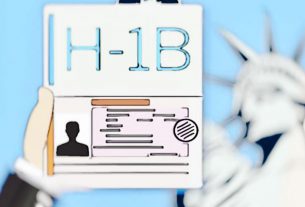BMTC has introduced only two new buses so far this year; about 19 percent of the total number of functional buses are not roadworthy.
Shivani Verma
Out of the total 6,490 operational vehicles by the state-run Bangalore Metropolitan Transport Corporation (BMTC)1,234 buses which are more than 11-years-old or have clocked 8.5 lakh km are still in operation. This year only 33 buses have been scrapped so far says data from the BMTC.
“Most of the buses operating under BMTC are old, and are susceptible to breaking down at any point. Even if we ask the authority to replace these buses, it falls on deaf ears so we resort to driving these buses. It is not only unsafe for the drivers who are driving these buses but also the passengers who are travelling in these buses. But we really have no hold over the quality of buses that we are riding, we have to follow the authority,” said Gangadhar, a BMTC bus driver.
The number of buses which are 11 years old has gone up over the years as per the BMTC data. Regional Transport Authority states the life of a state-run bus can be 15 years or when it clocks 10 lakh km. “BMTC usually scraps a bus once it completes 11 years or when it clocks 8.5lakh km,” said, a BMTC official. In 2017-18, 880 buses were scrapped and in 2018-19, 440 buses as per the BMTC data.

“We scrap the old buses when it completes the stipulated time period but if the condition of the bus is good or is maintained properly then we don’t scrap it. To maintain the balance as of now, we keep these buses as back-ups,” said Deepak N, Public Relations Officer (PRO) at BMTC.
He added, “We are not able to induct diesel buses because of National Green Tribunal’s stay order. Scrapping and inducting new buses is a cycle, we scrap the old ones and then get the new ones. With NGT’s restraint on inducting new diesel buses, we are bound to operate the old ones.”
He said that though the BMTC is considering electric buses, they worry about costs. “We can’t just scrap all the diesel buses at one go. We are looking forward to introduce electric buses by the end of 2019 on a lease model due to the higher cost of these buses. Cost is the major issue here since the battery costs a lot. Also, the electric buses are efficient in terms of pollution control,” he added.
The tussle between BMTC with National Green Tribunal (NGT) over the stay in adding new diesel buses to its fleet is going on for over a year and a half now. The diesel buses are in compliance with BS IV norms. In 2016, the NGT had asked BMTC to induct only environment friendly buses like CNG. The order came after a Bengaluru resident filed a petition asking BMTC to procure only CNG buses. The High Court of Karnataka passed an order that before finalizing the purchase of diesel engine buses by BMTC, the court shall be taken into confidence.
BMTC however, is against the order that the cost of electric buses is more. It was argued that the use of BS IV diesel bus is equivalent to CNG fuel and from safety point of view, it is better than CNG fuel.
Deepak N told The Softcopy that, the life of buses is usually increased due to the better maintenance of these buses. He said, during the refurbishment of these buses that all the parts are replaced with new ones. “Around 300-400 buses from these would be kept as backup. When the new buses come, we will definitely scrap the old ones,” he added.
While in 2017-18, 1,406 buses were added to the fleet, only 292 buses were introduced in the previous year.

“The NGT has given us permission to procure 2,158 diesel buses in 2017. Out of these we have procured 1,801 until now. We can still procure 357 diesel buses. The upcoming hearing on the case is scheduled in the next month, let’s see what it brings. To balance the shortage we have to go for some diesel and electric buses for now. Hopefully, by 2030 all the BMTC state run buses will be electric,” Deepak N, PRO at BMTC told The Softcopy.
Srinivas Alavilli, Co-founder of Citizens for Bengaluru said, “I think the NGT is being very wrong with their stay, as they are allowing lakhs of private diesel cars to run, yet they are stopping public transport. It is a horrible intervention from NGT’s part. Everyday more than 3,000 new vehicles are coming on the streets and this year only two buses have been added by BMTC. The shift from diesel to electric vehicles will happen eventually, but it will take some time. We need to prioritize the public buses as they are the solution for traffic and pollution more than anything else, then only the city will survive.”




